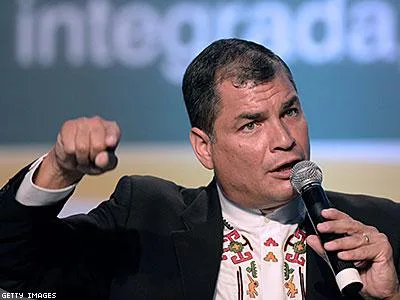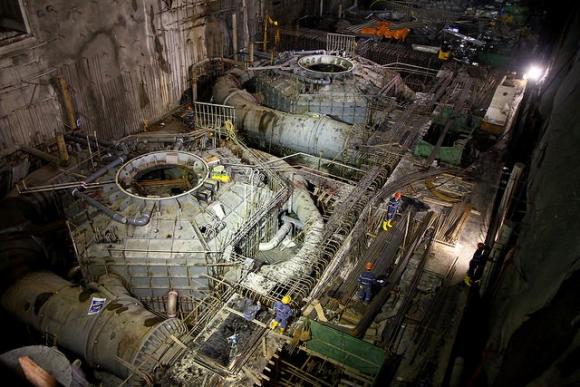Ecuador faces big challenges in 2015 as falling oil prices pressure government to rein in spending; outlook for expats is still good
By Sylvan Hardy
Since 2011, Ecuador has spent a greater percentage of its GDP on in![]() frastructure and social programs than any country in the western hemisphere. Although it may maintain that distinction in 2015 since it holds a huge advantage over second-place Canada, the country is almost certain to see major spending cuts.
frastructure and social programs than any country in the western hemisphere. Although it may maintain that distinction in 2015 since it holds a huge advantage over second-place Canada, the country is almost certain to see major spending cuts.
The reason: the dramatic drop in oil prices, the country’s top revenue source.
Although a government PR campaign hailing them as the “Ecuadorian Miracle” seems a little over the top, the infrastructure and public service improvements in Ecuador since President Rafael Correa took office in 2007 have been exceptional. Even Correa’s critics concede much of the change has made life more comfortable, although they question whether the country can afford the price tag.
An analyst for the World Bank who annually ranks Latin American countries by their standard living, says Ecuador has moved from 16th to seventh place among the region’s 26 countries since 2005.
Infrastructure improvements are the most visible. The construction of new highways and the reconstruction of old ones, has cut travel time dramatically between many destinations. New airports, most notably the Quito international airport at Tababela, have been built while others have been renovated. Massive public transportation projects, including Cuenca’s light rail system and Quito’s subway, are nearing the mid-point in construction. The most ambitious projects, although they are mostly out of public view, are eight hydro-electric projects currently under construction, that the government says will make Ecuador a net energy exporter by 2017.
Another very visible improvement has been the multi-year drop in crime rates, the results of large investments in police personnel, forensics labs, installation of video cameras in high crime areas and a nationwide 911 emergency call service. Ecuador’s murder rate has dropped below 10 in 100,000 annually for the first time in decades, and the country now ranks in the top five Latin American countries for fewest murders.
Public services such as health care, education and Social Security have continued to improve, the result of massive infusions of cash since 2008. The Social Security health care system has expanded and improved and last year opened its services to expats who pay modest monthly premiums.
The good news, going into 2015, is that most of these projects and improvements will remain in place.
The bad news is that we can’t expect to see many more in the coming year.
With oil prices dropping nearly 50% in eight months, it is almost assured that spending on public projects and services will be reduced. Correa has promised as much. “It will mean that we can only build 100 new schools instead of 200, and only 50 new jails instead of 75,” he said. What he hasn’t talked much about are likely cutbacks in social service spending.
There are other troubling signs as well.
One is Ecuador’s growing debt to the China, currently about $9 billion, and its reliance on Chinese management and workers in the construction of a number of large projects, including the hydro-electric plants.
Another is what many see as the increase in government regulation in almost all aspects of life, including education, labor, business, the media and importation rules. A prime example is the new tax on gas appliances that went into effect January 1; it may be intended to support the government’s plan to wean residents from cooking with gas, but its result is to take away individual choice, amounting essentially to a case of social engineering.
The long view, however, tells us that oil prices will rebound, though experts say it could take two to three years. If it manages prudently, limiting the amount of new debt it takes on, the country should survive the coming period of austerity. Ecuador’s use of the U.S. dollar, which Correa says puts the country in an “economic straight-jacket” may, in fact, be a blessing in disguise, forcing the government to live within its means
THE EXPAT OUTLOOK
Except for those operating large businesses, who are subject to expanding government regulation, life should carry on pretty much as usual in 2015 and beyond, for most expats. They will continue to enjoy the benefits of improved highways, airports, public transit, parks and sidewalks, as well as health care benefits. Expats 65 and older, will also continue to receive tax refunds and price breaks on travel.
All in all, life continues to be very good for most extranjeros in Ecuador.



















